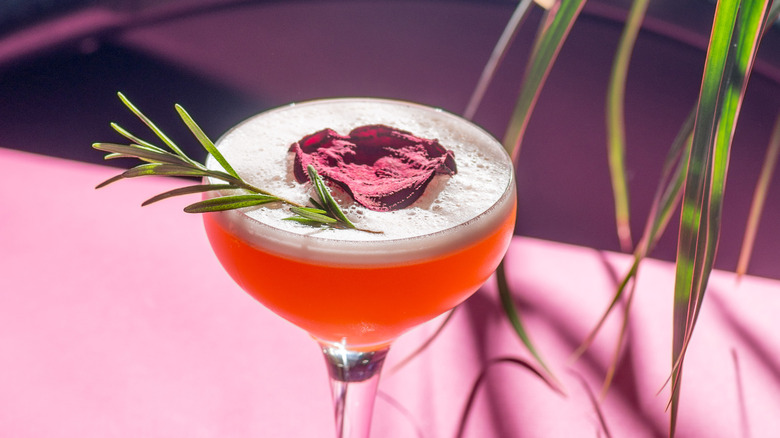The Reason Cocktail Bitters Aren't Considered A Beverage
Mocktails are for when you wanna feel fancy and fun but maybe you're underage, or maybe you're hungover from the night before, or maybe alcohol is just not your thing. Whatever the reason might be, you might be surprised to learn that even some of the virgin versions of classical cocktails sometimes contain alcoholic cocktail bitters. But how can this be?
The kind of bitters you mix into your drink can vary depending on who's making it, but on a basic level bitters are concentrated aromatics in an alcohol based liquid (via The Spruce Eats). This means essentially suspending some sort of aromatic ingredient or ingredients — herbs, spices, fruits, nuts, roots — in some high ABV (alcohol by volume) consumable liquid and infusing the flavors and aromas into the alcohol. These bitters are then used in mocktails to add some very complex profiles and to give the mocktails a little kick.
Is it alcohol or not?
So how can adding alcohol based bitters into a drink make it non-alcoholic? Well firstly, when mocktails and cocktails are made, only a dash or two or a few drops are used to flavor the drink. Bitters are very heartily infused with aromas so this is all you really need to use, and just a dash or two is not enough to raise the alcohol content to unsafe levels. The alcohol concentration of your drink as a whole, will be at or below about 1%, per Abara Above.
The reason that you don't have to show your ID when you order a mocktail is because technically the U.S. government classifies bitters as "non-beverages" due to their high ABV and because they are not consumed as beverages typically would be, per Abara Above and Cornell Law School. Because you're not ordering an alcoholic beverage, there is no need to confirm that you are of a legal drinking age and thus no need to card you.

